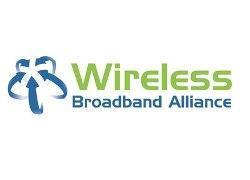The Wireless Broadband Alliance (WBA) has launched a new white paper outlining the key priorities for operators and technology vendors, and the monetisation potential for unlicensed technologies for IoT.
The report, entitled ‘Internet of Things: New Vertical Value Chains & Interoperability’, reveals that 85% of companies have made IoT a key focus area over the last 12 months, but have prioritised Consumer and Home, Transportation and Energy.
It also highlights that companies consider IoT service and network interoperability, and roaming are important for areas such as smart city and automotive in dense environments.
The WBA has analysed the use of Next Generation Hotspot (NGH) based on PasspointTM certified Wi-Fi equipment to facilitate the adoption of IoT services using unlicensed based radio technologies. Wi-Fi hotspots will be key for the development of IoT applications and services. But while current provisioning and sign-up procedures assume display and input capabilities, IoT devices will likely be defined without such capabilities.
NGH takes the established hotspot model and build new levels of ease of discovery, security of connection and efficiency of service. As a result, there is an opportunity to augment the on-boarding definition to enable simplified IoT devices to be provisioned with NGH security credentials, and is being considered an important initiative in making impactful strides towards commercial IoT deployments.

The report shows that access technologies currently being preferred to support IoT deployments are Wi-Fi (and its HaLow variation) and LP-WAN, followed by 3.5 GHz, NB-IoT and ZigBee.
With certain IoT applications only sending a few bytes of data per day, monetisation and revenue generation, especially with the use of unlicensed technologies, is a key focus of operators and technology vendors. When using unlicensed technology within IoT, monetisation will be driven by non-traditional approaches, such as big data, etc.
The WBA’s latest report shows that there are at least four different models emerging for the monetisation of IoT:
- Hardware Based: Adding network connectivity to an existing or new product. This connectivity will be coupled with a web based tool (typically cloud based), providing basic management of the network connected device.
- Service Based: Transforming traditional product offerings into a recurrent service offering. Importantly, this transforms the customer relationship and their associated value to the business by allowing continued engagement over the lifetime of the service offering.
- Data Insight Based: Instead of the business to consumer service revenue, data revenue is focused on the business to business opportunity. Businesses can generate revenue by monetising the suitably aggregated and anonymised data gathered from IoT.
- Ecosystem Model: Focus is not on the end-to-end product or service offering, but rather on delivering a shared platform to enable other ecosystem partners to monetise their unique capabilities.
These monetisation strategies can be supported by different pricing models: One-time charges, pay-as-you-go, subscription models, pay-for-results, freemium models or transaction based models.
“With IoT services now beginning to take shape, the industry is starting to look at how revenues will be shared down the IoT value chain. The WBA’s 2020 vision seeks to look at the role of Wi-Fi and other unlicensed technologies to support IoT and smart city services, which is why our latest report outlines the opportunities for unlicensed technologies within IoT,” said Shrikant Shenwai, CEO of the Wireless Broadband Alliance.
Companies are seeing that network interoperability and roaming in certain IoT use cases are important, and that existing authentication mechanisms based on NGH can be used to support IoT security.”
The WBA’s latest report, entitled ‘Internet of Things: New Vertical Value Chains & Interoperability’, is available to download here.
Comment on this article below or via Twitter: @ VanillaPlus OR @jcvplus






